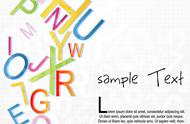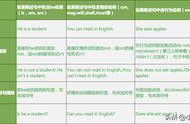上期我们研究了一般过去时的定义,构成,和常用的时间状语,本期我们研究一般过去时当中,陈述句变为否定句、疑问句以及肯定答语和否定答语等。
(一)陈述句变为否定句:1、如果句子中是be 动词(was /were )、情态动词(could ,might 等)只需在它们后面加not 即可。
I was a student. →I was not /wasn't a student.
It was a train. →It was not /wasn't a train.
They were workers. →They were not /weren't workers.
He could swim at the age of 6.
六岁时他能游泳。
→He could not / couldn't swim at the age of 6.
2、如果句子中是实义动词,需要借助助动词(did )来构成否定句。在一般过去时中,句子谓语动词是实义动词时,只需用did 即可,不需要考虑人称、数等因素。
(1) I worked here last year.
→I did not /didn't work here last year.
(2) He went to Beijing last month.
→ He did not /didn't go to Beijing last month.
(3)Tom did his homework at home.
→He didn't do his homework at home.
精析:第三个例子,特别要注意,这里did (做)是实义动词,不能把它认为是助动词did, 而在它后直接加not。大家要知道,助动词不能单独作谓语。还需要借助助动词did 来构成否定句。
重点提示:(1)用了助动词,后面的动 词一律用原形。
(2)变否定句时,如果你记 不 清缩写的形式,直接 用be 动词、情态动词和 助动词后加not 形式。
本期我们主要研究了一般过去时陈述句变否定句的情况,下期我们研究变疑问句语法规则,欢迎大家点赞评论,关注转发互动交流。Thank you, everybody! Bye, See you next time!
,













